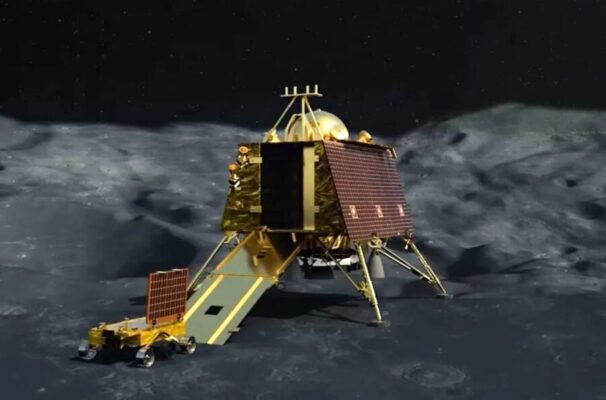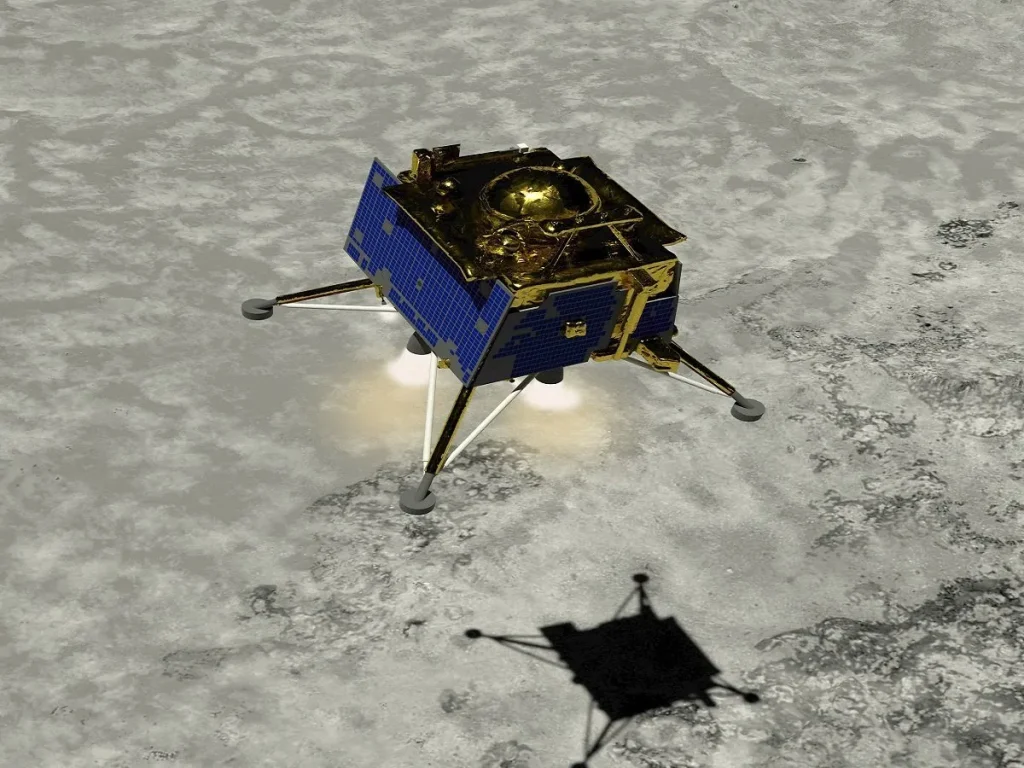ISRO’s ambitious third moon mission – Chandrayaan 3 has the entire country excited in anticipation. Chandrayaan-3’s Lander Module (LM) is all set for a soft landing on the lunar surface on Wednesday evening. This is a historic mission not just in Indian space research, but the entire globe as India aims to become the first country to reach the uncharted south pole of the moon. The LM Consisting of the lander (Vikram) and the rover (Pragyan), is scheduled to make a soft-landing near the south polar region of Earth’s only natural satellite at 6:04 PM on Wednesday (23 August)
Chandrayaan-3’s Landing Process

After a successful lift-off on July 14, ISRO’s launch vehicle, Mark-3, propelled Chandrayaan-3 into orbit. Chandrayaan-3 took multiple elliptic circles of the Earth gaining velocity. After a long journey of 3.84 lakh km, on August 5, the Chandrayaan-3 satellite entered the moon’s orbit and stabilised there for a few days. Now, the Vikram lander has been brought closer to the moon’s surface before the much-anticipated landing descent can begin.
The twenty minutes of terror, or T-20, begin on the day of landing, setting up a suspenseful conclusion. The Vikram lander will start descending towards the moon’s surface from a height of 25 km upon receiving commands from Bengaluru. The powered fall of the Vikram lander will send it hurtling into the moon’s surface at a speed of 1.68 km/s, or approximately 6048 km/h—almost ten times that of an aeroplane.
This is known as the rough braking phase and lasts for roughly 11 minutes. The Vikram lander will then begin to slow down with all of its engines operating, but the lander is still practically horizontal to the surface of the moon. The lander will touchdown with just two engines firing which will shut down once the sensors on the legs feel the lunar surface. The Vikram lander and rover are both designed to last one lunar day (14 Earth Days)
According to ISRO, Chandrayaan-3 is on schedule and the smooth sailing continues. After the successful landing, India will become the fourth country to master the technology of soft landing on the lunar surface after the US, China, and the Soviet Union.



